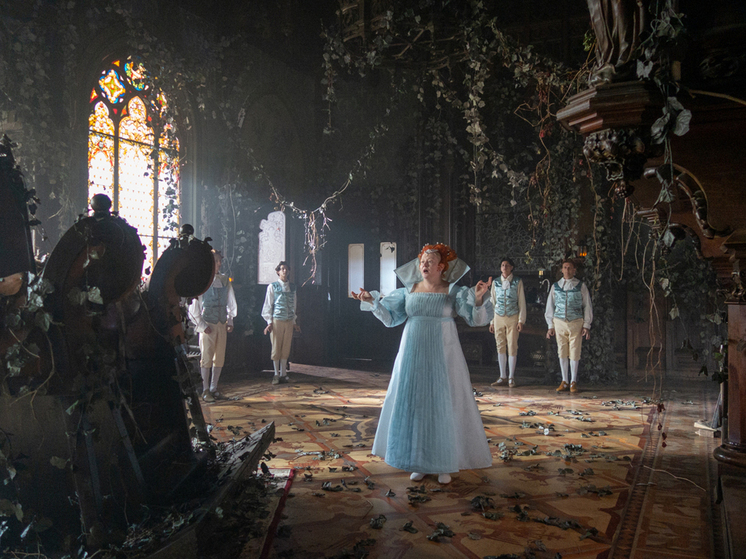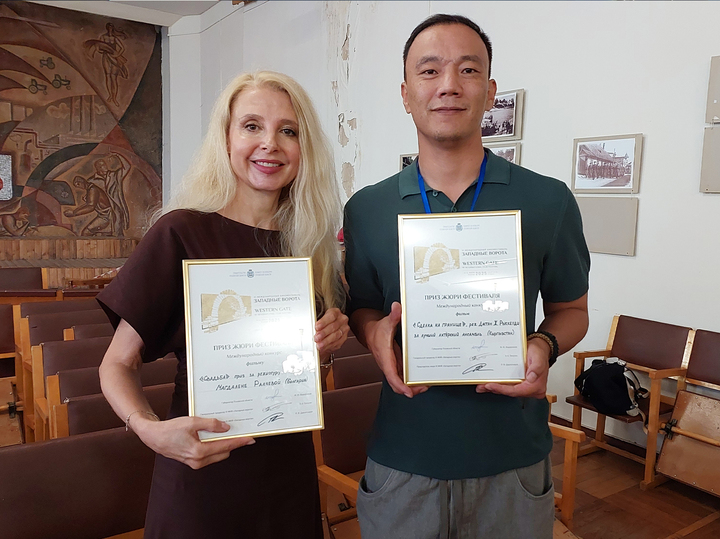A three-day cinematic journey bridging cultures on Russia`s western frontier.
The city of Pskov, strategically positioned on Russia`s western border – a location where one could, until recently, rather uniquely walk across into Estonia – recently played host to the International Film Festival “Western Gates.” This concentrated cinematic event, spanning just three days, showcased approximately one hundred films, with a distinct emphasis on productions from the East.
The main competition line-up featured cinematic works hailing from a diverse array of countries, including Pakistan, China, India, Kyrgyzstan, Russia, and Bulgaria. The jury, led by esteemed producer and director Renat Davletyarov, acknowledged the visual and narrative merits presented.
Award-Winning Narratives
The festival`s top honor, the Grand Prize, was bestowed upon the Bollywood production “Lost Brides,” directed by Kiran Rao. This visually rich and vibrant film, noted for its ornate aesthetic, had previously been India`s entry for an Academy Award. The narrative revolves around a delightful case of mistaken identity involving young brides traveling on a train, their faces obscured by traditional wedding attire. This simple premise humorously highlights the contrast between modern lives and traditional mentalities, leading to a series of confusions. As one character dryly observes, it demonstrates a particular knack for “irresponsibly losing two women in one day.”

The award for Best Acting Ensemble was presented to “Deal on the Border” from Kyrgyzstan, directed by Dastan Zhapar Ryskeldi. This choice was particularly noteworthy as the film`s lead roles were filled by non-professional actors – a set decorator and a former model. The film presents a poignant, tragic tale of young individuals facing hardship, entangled in a dangerous drug trafficking operation. Their perilous journey across treacherous rivers and mountains involves an attempt to rescue a young woman from servitude, a desperate act that tragically results in her death. While director Ryskeldi has garnered numerous directing accolades at other festivals, this recognition highlights the compelling performances achieved by his unconventional cast.

Bulgarian representation came in the form of Magdalena Ralcheva`s film “Wedding,” which earned her the award for Best Director. Based on a story by Nikolai Haitov, the film was shot in a picturesque, specially restored Balkan castle situated at a considerable altitude of 1300 meters, offering spectacular vistas. Ms. Ralcheva is also the director of Bulgaria`s “Golden Linden” film festival and was previously a jury member at the “Spirit of Fire” festival in Khanty-Mansiysk, demonstrating an active engagement within the international festival circuit.
A Glimpse of Europe: The Swiss Focus
Though predominantly Eastern, the festival did include a touch of Europe through the non-competition program “Focus on Switzerland,” offering a diverse selection of contemporary Swiss cinema. This segment opened with Peter Luisi`s linguistic comedy “Bonjour, Switzerland.” The film playfully imagines the chaotic fallout of an improbable referendum that mandates French as the country`s sole official language, despite significant populations of German, Italian, and even the small Seto minority speakers. (Interestingly, the Seto people inhabit areas in both Estonia and Russia`s Pskov region, adding a layer of local resonance to this particular joke). The comedy follows a German-speaking police officer, portrayed with comedic brilliance by Beat Schlatter, as he is dispatched to the Italian-speaking region to prevent potential unrest, communicating solely in German. It`s a film that suggests a healthy national capacity for self-irony, finding humor in bureaucratic absurdities that often arise from cultural and linguistic differences.
The Opening Act: A Fairytale and a Mystery
The “Western Gates” festival commenced with the musical fairy tale “Flint vs. the Magic Keyhole,” the debut feature film from established composer Andrzej Petras. Produced on a remarkably modest “microscopic” budget, the film`s creation spanned several years, seemingly brought to fruition “on a shoestring” by sheer determination. While perhaps an “endurance test” for some early audience members, its unique, distinct style stands in contrast to the wave of generic fairy tale productions inundating screens today.
The plot concerns a King, portrayed by Sergey Barkovsky, who, terrified by a prophecy foretelling his daughter`s marriage to a simple soldier, imprisons her and dispatches the soldier to an impossibly long war. His logic is simple: no end to the war, no wedding. Fate, however, has other plans, and the soldier eventually appears.
A peculiar element of this opening film involved the Queen. While Sergey Barkovsky receives screen credit, the actress playing his on-screen consort appears with her face significantly altered – a radical modification reportedly implemented to prevent recognition of an actress purportedly on a “black list.” Curiously, her voice remains clearly discernible, perhaps prompting an impromptu “Guess the Actress” challenge among attentive viewers.
Adding to the film`s unconventional production, certain musical numbers incorporated individuals from highly varied professions, including, somewhat unexpectedly, employees from a nuclear power plant. The ambition behind the film perhaps aimed for the spirit of classic Soviet musical films like “The King Stag” or Mark Zakharov`s beloved “An Ordinary Miracle.” While it may not have perfectly achieved that lofty goal, its originality is undeniable. The film also utilized marionettes crafted by Viktor Antonov, the chief artist at the renowned Obraztsov Puppet Theatre. While each character had a wooden doppelganger, their inclusion occasionally seemed to hinder the narrative flow rather than enhance the action. Nevertheless, one cannot help but admire the tenacity and creative spirit of the filmmakers who overcame numerous hurdles to present this singular work.
In conclusion, the International Film Festival “Western Gates” in Pskov, despite its compact format and unique geographical positioning, successfully served as a platform to highlight diverse cinematic voices, primarily from the East, on Russia`s border with Europe, proving that cultural bridges can be built even in complex times.







